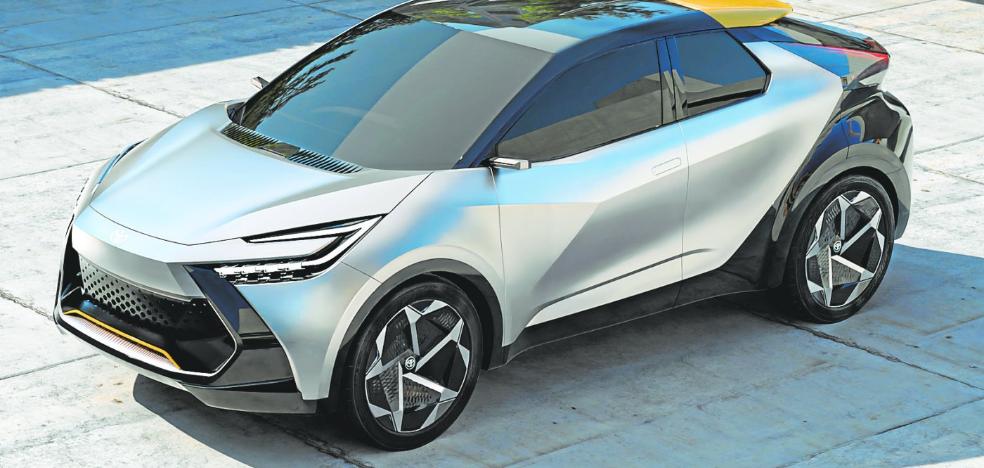BMW has started production of its BMW iX5 Hydrogen model. The production of this small series of hydrogen vehicles takes place in the pilot plant of the Munich Research and Innovation Center (FIZ). The first Sports Activity Vehicle (SAV) in history with
fuel cell technology The hydrogen fuel tank has already undergone an intensive testing program under demanding conditions during the development phase and will now be used as a technology demonstrator for local carbon-free mobility in selected regions from spring 2023.
“Hydrogen is a versatile energy source that plays a key role in the drive towards climate neutrality,” he says.
Frank Weber, member of the Board of Management of BMW AG responsible for development. “We are convinced that hydrogen will gain a lot of importance for individual mobility and therefore consider a mix of battery-electric and fuel cell propulsion as a sensible approach in the long term. Fuel cells are also not necessary
critical raw materials such as cobalt, lithium or nickel, so by investing in these kinds of propulsion systems we also strengthen the geopolitical resistance of the BMW Group. Our test fleet of the BMW iX5 Hydrogen will allow us to gain valuable new insights, enabling us to offer customers an attractive product offering once the hydrogen economy becomes a mainstream reality.”
The BMW iX5 Hydrogen is being built at BMW Group’s pilot plant in its
Research and Innovation Center Munich. This is the interface between development and production, where each new model of one of the company’s brands is first manufactured. About 900 people work in coachbuilding, assembly, model building, concept vehicle construction and additive manufacturing.
Each of them works
up to six projects of vehicles at the same time and is responsible for ensuring that both the product and the manufacturing process are ready for series production. In the case of the BMW iX5 Hydrogen, specialists in hydrogen technology, vehicle development and initial assembly of the new models have worked closely together to integrate advanced propulsion and energy storage technology.
“The production of the BMW iX5 Hydrogen and the fuel cell systems developed by BMW demonstrate our superior flexibility and unparalleled know-how.
in small-scale production“, points out
Milan Nedeljkovic, member of the Board of Management of BMW AG, responsible for production. “It shows that we already have the experience to integrate hydrogen technology into the production system of the BMW iFACTORY as an additional type of drive.” – he added. –
The BMW Group plant in Spartanburg, USA, supplies the basic vehicles for the hydrogen model, which was developed on the platform of the BMW X5. In the pilot plant body they are equipped with a new floor construction that allows the two hydrogen tanks to be accommodated in the center tunnel and under the rear seat group. Model-specific 12 V and 400 V electrical systems,
high-quality battery, the electric motor and fuel cell are integrated during the assembly phase, along with standard production parts. The electric motor, which is located in the rear axle area together with the powerful battery, is a product of the current fifth-generation BMW eDrive technology, which is also used in BMW’s battery-electric and plug-in hybrid models. .
The
fuel cell systems located under the hood of the BMW iX5 Hydrogen have been produced since August of this year at BMW’s in-house hydrogen competence center in Garching, north of Munich.
Many components are produced
exclusively for the hydrogen SAV, including some made at the Additive Manufacturing Campus – BMW Group’s competence center for 3D printing – which is also part of the pilot plant. The BMW iX5 Hydrogen goes through all the usual production stages, starting with the coachbuilder, through the paint shop and assembly, and ending with a final inspection of each vehicle. Each vehicle then undergoes an extensive function check at the BMW Group test center in Aschheim.
The BMW iX5 Hydrogen combines all the benefits of a local emission-free propulsion system with excellent long-distance and everyday usability. This makes hydrogen fuel cell technology an attractive additional alternative to battery electric propulsion. This is especially relevant for
customers who have to make short stops refuel and have a large autonomy, as well as for the regions that do not yet have adequate charging infrastructure.
Source: La Verdad
I am Ida Scott, a journalist and content author with a passion for uncovering the truth. I have been writing professionally for Today Times Live since 2020 and specialize in political news. My career began when I was just 17; I had already developed a knack for research and an eye for detail which made me stand out from my peers.



